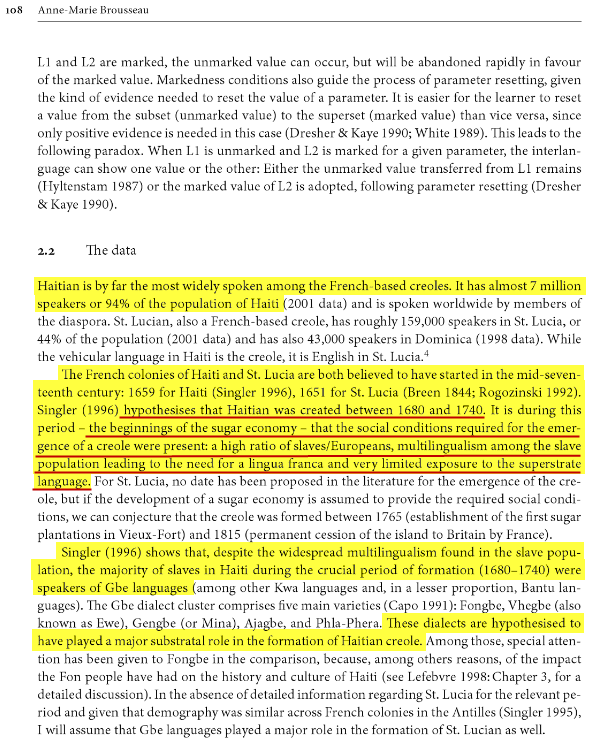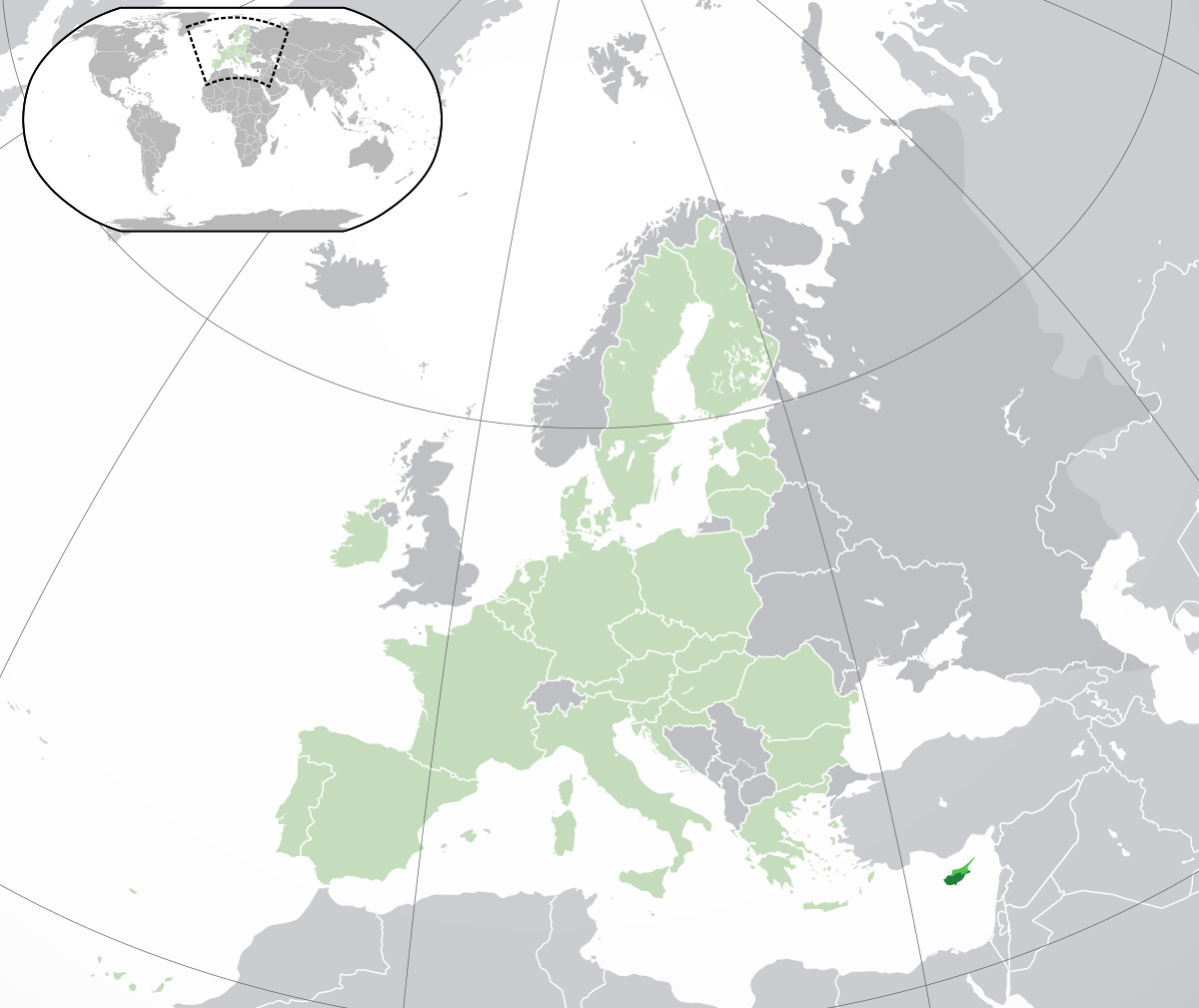There is no ethnic connection between the Greek-speaking population of Cyprus and the inhabitants of modern Greece. ( — Sir George Hill / The History of Cyprus — )
The history and role of Cyprus in the Greek state
Collapse
X
-
https://www.myheritage.com/ethniciti...y-distribution - Sir my-heritage-DNAOriginally posted by tchaiku View PostThere is no ethnic connection between the Greek-speaking population of Cyprus and the inhabitants of modern Greece. ( — Sir George Hill / The History of Cyprus — )
Comment
-
-
Only 2% Central Asian, that’s really interesting. Here we have a people, the modern Bulgarians, that are so quick to ridicule their neighbours, the modern Macedonians, for choosing to associate themselves with the ancient Balkan tribe, made famous by Alexander and Phillip all those years ago, meanwhile, they have chosen to base their whole ethno-genesis on some insignificant, obscure and nomadic Central Asian warrior tribe that happened to bully its way through eastern Thrace and Moesia, subjugating the indigenous people as it passed through. But that’s their business entirely if they want to honour some random and non-European Turkic tribe by associating themselves with them. It only becomes a problem when they ridicule us for associating ourselves with the indigenous Ancient Macedonians which, only a fool would believe, have left no more than 2% of their DNA into the modern Macedonian genetic makeup. I think that’s the reason why the term ‘Tatari’ was coined by Macedonians in reference to modern Bulgarians – to put these lost Macedonians and Thracians in their place by shaming them with the Tatar tag. I’m pretty sure most Macedonians don’t actually believe the old Bulgars have left much of a genetic trace in their neighbours’ genetic makeup. The ‘Tatar’ tag is meant for ridicule only.Originally posted by Amphipolis View PostActually that says 73% has some Greek in them. By the way, where is the famous Tatar element? I can only see 2% Central Asian.
Comment
-
-
Maybe not for this thread, but I met & knew this Greek guy who was from southern Peloponnese, a native of Messenia. He told me, after several months (he opened up without me asking him anything), that on his mother's side - the grandparents still knew Arvanitika; but his mother only knew Greek. From his father's side, he said that his grandparents knew a little bit of Romanian.Originally posted by tchaiku View PostCypriots are cheifly Middle Eastern + lot of European.
Pontic Greeks are predominantly Middle Eastern.
I also had the opportunity to meet a few Greeks from Asia Minor and I was surprised that a couple of them did not even look Turkish or Iranian -- by their features, I thought they were from somewhere close to India or Pakistan. Other Pontians looked like mainland Greeks, Arvanites or Vlachs (one lady looked like she could be my mother's cousin or aunt). A Greek Cypriot also said that on his father's side they were Orthodox Arabic-speakers.Last edited by Carlin; 10-14-2018, 09:30 AM.
Comment
-
-
My post from 2017.
Originally posted by Carlin View PostCyprus - Our DNA looks East, not West
URL:
- The findings show that Cyprus is genetically much more heterogeneous than other countries; only 10 per cent of individuals possess tissue types that one comes across just once (known as unique phenotypes).
- And Cypriots are genetically closer to the Near East rather than to the West: the research discovered that the most common haplotype (codenamed A1B8DR3) in Europe is ranked 27th among the haplotypes found among the island’s population.
- To varying degrees, the genetic makeup of Greek Cypriots has commonalities with Armenians, Greeks, Iranians, Turks and Palestinians, to name but a few.
- Throughout the centuries, the Mediterranean island has been conquered and settled by a succession of peoples, including Greeks, Romans, Jews, Assyro-Babylonians and Arabs and Franks.
- Citing what Kosteas called an intriguing find, Turkish Cypriots have a great deal in common with people in Thessaloniki, many of whom are descendants of refugees from Asia Minor.
- That study found that Greek markers accounted for around 23 per cent of Cypriot DNA. Apart from ‘Greek DNA’ markers, Cypriots showed signs of Iranian, Italian – a significant 20 per cent – Sicilian, Armenian, Syrian, Georgian, Saudi and Palestinian markers.
Comment
-
-
History of the Jews in Cyprus
URLs:
- The Jews lived well in Cyprus during the Roman rule. During this period, Christianity was preached in Cyprus among the Jews at an early date, St Paul being the first, and Barnabas, a native of Cyprus, the second. They attempted to convert the Jews to Christianity. Under the leadership of Artemion, the Cypriot Jews participated in the great rebellion against the Romans ruled by Trajan in 117 AD.
- The island suffered great losses during the Jewish rising of 115/116 AD.
- According to a late source, written by Eutychius of Alexandria Cypriot Jews attacked Christian monasteries on the island during the reign of Heraclius (610-641).
- In 1110 CE, Jews were engaged in tax collecting on the island, and Benjamin of Tudela reports that in 1163 there were three distinct Jewish communities in Cyprus, Karaites, Rabbanites and the heretical Epikursin, who observed the Sabbath on Saturday evening.
History of the Latin Community of Cyprus
URL:
- Turning to the Latin Lay population in Cyprus following its capture in 1571 by the Ottomans, one ascertains that the Latins still remaining on the island, after the conquest, were for the most part Venetians and had maintained a Consulate in Larnaca. By the end of the seventeenth century, however, the French appear to have supplanted the Venetians. A French explorer, N.D. Hurtrel visited the island in 1670 and mentioned a French consul resident at Larnaca for providing services to ships calling there from Marseilles and other French ports. The Dutch Van Bruyn, who visited Cyprus in 1683, mentioned that all the European merchant residents in Larnaca were French. So it should be noted here that is was not by any means fortuitous that the majority of the Latins resided in Larnaca because the consulates established at the port provided both employment and protection for the Latins, secular as much as clerical, resident in Cyprus.
- French and Italians (a second wave) began to settle in the island protected by the Capitulation Agreement signed a long time ago between France and Ottoman Empire (1569).
- According to Malcolm Laing Meason, who visited Cyprus in 1853, a fair number of Frenchmen and Italians settling in Cyprus took Cypriot wives and busied themselves with commerce or various other professions.
- In recent decades, intermarriage between native Cypriots and Roman Catholics from Eastern Europe such as Poles and Czechs or even with Filipinos from the Far East, has added to this national heterogeneity, and the Latins of Cyprus look set to become not only more numerous on the island, but also more diverse ethnically.
Comment
-
-
In this book of the Zosima brothers, excerpts from the ancient geographer Scylax are mentioned where the Greek cities are recorded in the entry for Cyprus.
Apart from the Greek cities of Salamis and Marion ALL others were "barbaric", meaning NOT Greek.



Comment
-
-
Reason/possibility #1: The ancient Native or Indigenous peoples of Cyprus were seemingly of Levantine and/or Semitic stock (close if not identical to the "modern" Levantine DNA).Originally posted by tchaiku View PostFor Carlin - Cypriots seem to be closer to Levantines than to Armenians why would that be?
The Cypriot population was subsequently Hellenized - Robert Jennings in his Thesis "The Hellenization of Cyprus in the Late Cypriot III and Beyond: Detecting Migrations in the Archaeological Record" theorises a conquest event and the imposition of Greek language by possibly Doric invaders (warrior elite/aristocracy who came in small numbers). Greek migrants seem to have taken control of most of the Cypriot cities as a warrior elite, with their language gradually coming to predominate throughout the island while the material culture remained predominantly native.
See Post #20 in this same thread for further details on this.
Reason/possibility #2: Large & extensive settlements of Arabs in the medieval period - settlers coming from Syria, Lebanon, or Palestine.
A few examples -





1) 649 AD: Mu'awiya, the Arab governor of Syria, decided to summon the Syrian and Egyptian fleets and croosed from Acre to Cyprus with a large number of ships, attacking and sacking Salamis-Constantia.
2) A second expedition dated four years later to 653-654 AD, apparently wrought havoc in many Cypriot urban sites (Amathos, Laptha, Salamis-Constantia, Soloi and Kition), some of which hastily erected walls to protect their population.
3) The ninth-century Arab historian Baladhuri reports that Mu'awiya (the Arab governor of Syria) "sent to the island (= Cyprus) 12,000 men (...) and erected mosque in it. Moreover, Mu'awiya transplanted from Ba'labakk a group of men and build a city (...) whose inhabitants were assigned special stipends until his death." --- al-Baladhuri, Kitap cit., XIII, p. 236.
4) When in 691-692 AD "Justinian foolishly broke the peace with Abimelech and strove in his folly to move the population of the island of Cyprus" to found the city of Nea Justinianoupolis on the Hellespont, among the Cypriots who were transplanted, were also some Arabs.
Source - URL:
--------------------------------------------------------------------------------------------------------------------------------

 Last edited by Carlin; 01-31-2019, 02:52 AM.
Last edited by Carlin; 01-31-2019, 02:52 AM.
Comment
-
-
URL:
- Examples of the early Ottoman deportation and settlement policy are many. One of the most illustrative cases is the deportation of groups from Anatolia into the newly conquered Cyprus (Barkan 1949-1950 : 550-561). According to the deportation decree of 24 September 1572, ‘one family out of every ten in the provinces of Anatolia, Rum (Sivas), Karaman and Zülkadriye were to be sent to Cyprus’ in order to rehabilitate and provide the security on the island. The deportees were to be chosen from peasants and craftsmen who were to be exempted from paying taxes for two years in their new settlement (İnalcık 1954 : 123 ; Arslan 2001 : 337-345).
Comment
-
-
Arabic-speaking Oriental Christians from Famagusta had emigrated to Cyprus on account of the Mongol and Mamluk conquests of Syria
Comment
-
-
Any idea when did the Greek Cypriot dialect started to emerge?Originally posted by Carlin View PostEclipse of a language(s) can and does happen (faster than we think), and depend on social and other conditions. The principles and processes are completely deterministic.
So, what does Haiti and Haitian creole have in common with Cyprus? Not much, although there might be some similarities as the sugar economy also existed as did slavery (importation of large numbers of slaves).
Merely using this as an example to illustrate how TODAY a population of 7 million people, of African origins, developed their own French-based language - and in the process the African languages and dialects they spoke were completely eclipsed. As per the author's conjecture, the Haitian creole was formed between 1765 and 1815.

Or when did the hellenization started to occur?
In my opinion modern Cypriots are more European than the early Byzantines in late antiquity. I believe the ancient Greek impact in Cyprus was similar to that of Pontus which is minimal. But then as you said the island was probably abandoned somewhere in the Dark Ages.
In fact I believe an other wave of Greek speakers migrated there during the Middle Ages. I think the Greek language was installed after an other wave of migration, but that is just a hypothesis not something I can prove with sources.
Comment
-










Comment